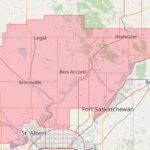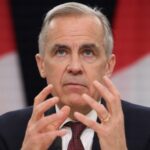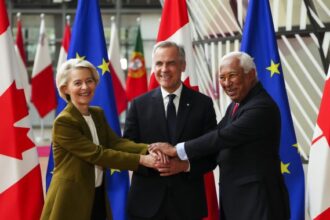In a strategic political realignment that reverberated through Alberta’s political landscape yesterday, the provincial New Democratic Party formally severed its ties with the federal NDP—a bold maneuver aimed at reconnecting with voters in Canada’s energy heartland. The decision, years in the making, represents a significant shift in the party’s approach to navigating Alberta’s unique political terrain where energy policies and provincial autonomy remain lightning rod issues.
“This is about ensuring Albertans have a progressive alternative that puts Alberta first,” said provincial NDP leader Naheed Nenshi during the announcement at the party’s Calgary headquarters. “Our values remain progressive, but our focus must be squarely on the distinct priorities and challenges facing Albertans without the constraints of federal party alignment.”
The separation follows years of tension between Alberta’s economic interests and federal policies, particularly regarding oil sands development and pipeline projects. Political analysts suggest the provincial NDP has consistently struggled to distance itself from federal counterparts whose environmental policies often clash with Alberta’s economic priorities. A recent poll from CO24 Politics showed nearly 68% of potential NDP voters in Alberta were hesitant about supporting the party due to its federal connections.
This realignment bears striking similarities to the Quebec Liberal Party’s long-standing separation from its federal counterpart, which has allowed it to adopt positions closer to Quebec’s interests without federal constraints. Speaking to CO24 News, political scientist Dr. Amelia Richardson from the University of Calgary noted, “This is a pragmatic recognition that Alberta’s political identity requires provincial parties to demonstrate clear independence from Ottawa-based decision making.”
The Alberta NDP’s decision comes amid growing regional sentiment that federal parties don’t adequately represent western Canadian interests. Last year’s showdown between Alberta and Ottawa over natural resource jurisdiction highlighted these tensions, receiving extensive coverage in Canada News outlets and fueling debates about provincial autonomy.
Financial implications of the split are substantial. The provincial party will now establish an independent fundraising apparatus and create separate branding to distinguish itself from federal counterparts. According to internal documents obtained by reporters, the party expects a 30% increase in local donations following the separation.
Conservative critics have dismissed the move as political theater. Premier Danielle Smith characterized it as “a desperate rebrand from a party that can’t escape its anti-energy ideology,” though polling suggests the strategy may prove effective with swing voters concerned about provincial interests.
The move represents part of a broader trend of regionalization in Canadian politics, where provincial parties increasingly seek to differentiate themselves from federal affiliations. According to CO24 Business analysis, similar conversations are emerging in Saskatchewan and British Columbia, reflecting a changing dynamic in Canadian federalism.
Labour organizations, traditionally strong NDP supporters, have offered mixed reactions. “We support this pragmatic decision,” said Alberta Federation of Labour president Gil McGowan. “But we expect the provincial party to maintain its commitment to workers’ rights and fair transition policies.”
As Albertans prepare for their next provincial election, the question remains: will this strategic decoupling allow the Alberta NDP to successfully navigate the province’s unique political currents, or has the federal association already created an identity too difficult to shed? For a province that has long felt misunderstood by Ottawa, the answer may well determine Alberta’s political future.


















